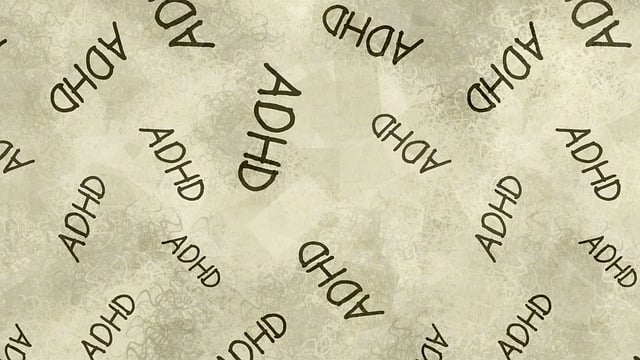Group facilitation at Littleton Alcohol Abuse Therapy is a powerful tool for mental wellness support, creating supportive communities that foster recovery through peer connections and open communication. Effective strategies include structured discussions, reflective practices, and active listening to build community and belonging. Incorporating mental wellness podcast series boosts accessibility. Facilitators play a critical role in setting ground rules, modeling open dialogue, and using techniques like normalizing diverse perspectives to create a safe space for vulnerability and connection. Strong communication skills, cultural sensitivity, and structured agendas enhance the therapeutic benefits of group sessions. Measuring success involves evaluating attendance, engagement, and improvements in symptoms through diverse assessment methods and participant testimonials.
Mental wellness group facilitation plays a pivotal role in enhancing therapeutic outcomes, particularly in addressing issues like Littleton Alcohol Abuse Therapy. This article delves into the art and science of group therapy leadership, exploring strategies for creating safe spaces, fostering open communication, and promoting active participation. By understanding these techniques, facilitators can effectively guide individuals toward recovery and personal growth. Through a comprehensive approach that includes assessment and evaluation, this guide offers valuable insights for professionals in the field.
- Understanding the Role of Group Facilitation in Mental Wellness
- Creating a Safe and Supportive Environment for Participants
- Effective Communication Strategies for Group Therapy Sessions
- Techniques to Foster Open Dialogue and Engagement
- Measuring Success: Evaluating the Impact of Group Facilitation on Recovery
Understanding the Role of Group Facilitation in Mental Wellness

In the context of mental wellness, group facilitation plays a pivotal role in creating supportive environments that foster recovery and growth. As a powerful tool, it enables individuals to connect, share experiences, and gain insights from peers facing similar challenges. This dynamic approach goes beyond individual therapy, offering a sense of community and belonging, which is crucial for navigating complex mental health journeys. Techniques like active listening, reflective practices, and structured discussions facilitate open communication, ensuring every voice is heard.
For instance, in a Littleton Alcohol Abuse Therapy setting, group facilitation can be instrumental in burnout prevention strategies for healthcare providers. It promotes stress management by providing a safe space for members to explore coping mechanisms, build resilience, and learn from one another’s experiences. Moreover, integrating mental wellness podcast series production techniques into these groups can enhance engagement, making sessions more interactive and accessible, ultimately contributing to improved outcomes.
Creating a Safe and Supportive Environment for Participants

Creating a safe and supportive environment is paramount for effective mental wellness group facilitation. This begins with establishing clear boundaries and ground rules that encourage respect, confidentiality, and active participation. As a facilitator, it’s crucial to model open communication, actively listen to each participant’s experiences, and validate their feelings without judgment. Using techniques like normalizing diverse perspectives and fostering an atmosphere of non-criticism helps individuals feel seen and understood, reducing barriers to vulnerability and honest expression.
At Littleton Alcohol Abuse Therapy, we understand that healing occurs best within a nurturing setting. Our approach incorporates mind over matter principles to promote self-esteem improvement, enabling participants to regain control over their lives. By cultivating a safe space, we facilitate meaningful connections and empower individuals to support one another through shared experiences, ultimately enhancing the therapeutic benefits of group facilitation.
Effective Communication Strategies for Group Therapy Sessions

In group therapy sessions, effective communication strategies are key to fostering a safe and supportive environment, which is crucial for successful Littleton Alcohol Abuse Therapy. Facilitators play a vital role in ensuring every member feels heard and respected. Active listening, where the facilitator shows genuine interest and understanding by paraphrasing and summarizing participants’ thoughts, encourages open dialogue. This simple yet powerful technique allows individuals to clarify their feelings and experiences, enhancing self-awareness and interpersonal connections.
Additionally, non-verbal cues and body language are essential tools for group facilitators. Maintaining eye contact, adopting an open posture, and using appropriate gestures can convey empathy and engagement, boosting participants’ confidence. By combining these strategies with a structured agenda that allows for balanced participation, therapists can navigate complex discussions, address sensitive topics like Burnout Prevention Strategies for Healthcare Providers, and encourage positive Mental Health Policy Analysis and Advocacy within the group setting.
Techniques to Foster Open Dialogue and Engagement

Creating a safe and supportive space is paramount for fostering open dialogue within mental wellness groups. Facilitators play a crucial role in encouraging active participation by all members, especially when addressing sensitive topics like Littleton Alcohol Abuse Therapy. Techniques such as active listening, where facilitators reflect on and paraphrase individuals’ thoughts, promote feelings of validation and encourage continued sharing. Additionally, incorporating icebreakers or group activities can help build camaraderie and normalize vulnerability, making it easier for participants to open up about their experiences.
Cultural sensitivity in mental healthcare practice is essential for creating inclusive environments. Facilitators should be trained to recognize and respect diverse cultural backgrounds, beliefs, and communication styles. This understanding enables facilitators to adapt their approach, ensuring that every member feels heard and respected. Stress management workshops organization and social skills training can further enhance group dynamics, providing participants with practical tools for effective communication and stress reduction, ultimately strengthening the therapeutic bond within the group setting.
Measuring Success: Evaluating the Impact of Group Facilitation on Recovery

Measuring success in mental wellness group facilitation is paramount to evaluating the impact and effectiveness of interventions. It involves a multifaceted approach to assess both individual and collective progress, as recovery is a complex journey unique to each participant. One key indicator is consistent attendance and active engagement in discussions, reflecting a sense of belonging and commitment to the process. By encouraging open dialogue, participants can share their experiences, challenges, and victories, fostering a supportive environment that strengthens coping mechanisms.
Additionally, structured assessments and feedback forms allow for quantitative analysis of improvements. These tools can gauge changes in symptoms related to anxiety, depression, or substance abuse (in this case, Littleton Alcohol Abuse Therapy). Qualitative methods, such as participant testimonials and observations by healthcare providers, offer deeper insights into the impact of group facilitation. Integrating conflict resolution techniques and stress management workshops within these groups further enhances recovery outcomes, as evidenced by improved communication skills and better coping strategies among participants. This holistic approach ensures that the Littleton Alcohol Abuse Therapy program not only addresses immediate concerns but also equips individuals with lifelong tools for mental wellness.
Group facilitation plays a pivotal role in enhancing mental wellness, as evidenced by the successful outcomes in Littleton Alcohol Abuse Therapy. By creating safe spaces, employing strategic communication, and implementing techniques to encourage open dialogue, facilitators can significantly impact participants’ recovery journeys. Measuring success through evaluations ensures continuous improvement, allowing for tailored approaches that cater to diverse needs. This comprehensive approach not only benefits individuals seeking support but also contributes to a more holistic understanding of group therapy’s effectiveness in various settings.














